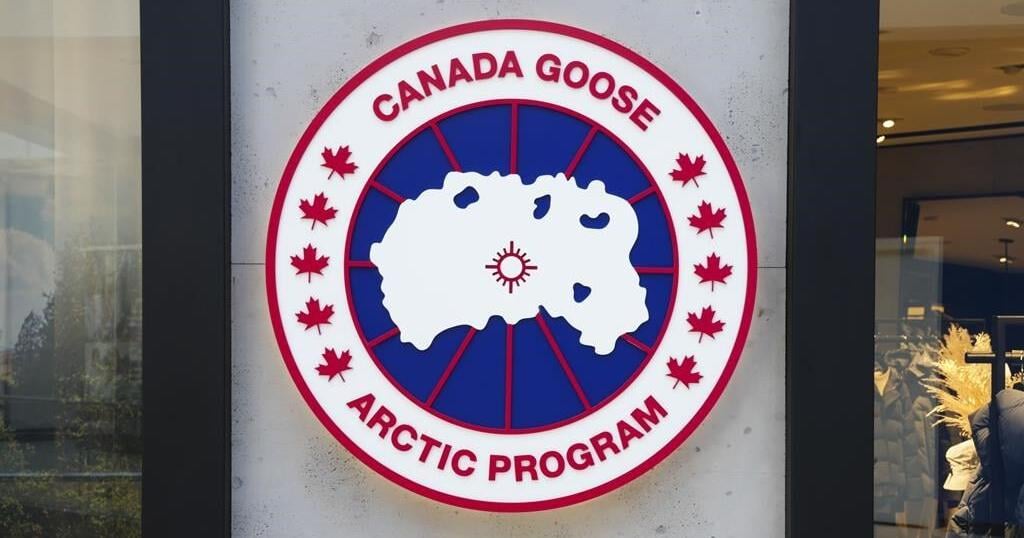Rising shelter costs are now the biggest contributor to above-target inflation, but Bank of Canada governor Tiff Macklem said the central bank is powerless to address them. That was just one of the limits of monetary policy that Macklem outlined in a Feb. 6 speech before the Montreal Council on Foreign Relations about what the bank can and can’t do — a topic that has taken on urgency as the public and policy makers clamour for solutions to issues such as housing affordability. Here are three key takeaways from Macklem’s speech.
Business
Bank of Canada can’t solve housing crisis, Tiff Macklem says
Governor says housing affordability can’t be fixed by raising or lowering interest rates

Interest rates can’t solve the housing crisis
Housing affordability cannot be fixed by raising or lowering interest rates, the Bank of Canada governor said. Shelter price inflation has been elevated for several years and increased further in the past six months. But none of the underlying reasons behind the country’s housing supply crunch can be addressed by monetary policy, Macklem said.
He said that while shelter price inflation partly reflects the impact of increases in the central bank’s policy rate on mortgage interest costs, it also reflects increases in rents and other housing costs, which are more related to the structural shortage of housing.
“That is not something monetary policy can fix. But it is something we need to understand and factor into monetary policy because it is affecting the cost of living for Canadians,” he said.
While monetary policy has big effects on the housing sector and changes in the policy rate affect demand for housing very quickly due to their influence on mortgages, Macklem said the effects of monetary policy on supply are much more limited.
The pandemic proved monetary policy can control inflation
Canada experienced the deepest recession on record and inflation fell sharply at the start of the pandemic, Macklem said. The economy then had the fastest recovery ever when it reopened.
He said that amid the huge swings in the economy, monetary policy has shown it has the power to control inflation over the medium term.
“The last few years have caused some people to question monetary policy. That’s not surprising,” he said.
Combined actions by governments in rolling out fiscal stimulus and the Bank of Canada in cutting the policy rate to near zero helped keep the economy going and avoided deflation, Macklem said.
He added that they probably could have begun withdrawing stimulus sooner, but that even if they had, the impact on post-pandemic inflation would have been minimal.
Hitting the two per cent inflation every month
Rather, he said, monetary policy works with a lag of more than a year. This means that by the time a policy change affects inflation, the relative price shock that caused concern has typically run its course.
Those relative price shocks are fluctuations in specific prices, often for energy and food, because of things like geopolitical events, droughts and transportation disruptions. As long as these don’t broaden into more generalized price changes, they have a temporary or transitory effect on inflation, he said.
Macklem noted that central banks can’t prevent short-run fluctuations in inflation caused by these relative price shocks.

Business
TC Energy cuts cost estimate for Southeast Gateway pipeline project in Mexico

CALGARY – TC Energy Corp. has lowered the estimated cost of its Southeast Gateway pipeline project in Mexico.
It says it now expects the project to cost between US$3.9 billion and US$4.1 billion compared with its original estimate of US$4.5 billion.
The change came as the company reported a third-quarter profit attributable to common shareholders of C$1.46 billion or $1.40 per share compared with a loss of C$197 million or 19 cents per share in the same quarter last year.
Revenue for the quarter ended Sept. 30 totalled C$4.08 billion, up from C$3.94 billion in the third quarter of 2023.
TC Energy says its comparable earnings for its latest quarter amounted to C$1.03 per share compared with C$1.00 per share a year earlier.
The average analyst estimate had been for a profit of 95 cents per share, according to LSEG Data & Analytics.
This report by The Canadian Press was first published Nov. 7, 2024.
Companies in this story: (TSX:TRP)
The Canadian Press. All rights reserved.
Business
BCE reports Q3 loss on asset impairment charge, cuts revenue guidance

BCE Inc. reported a loss in its latest quarter as it recorded $2.11 billion in asset impairment charges, mainly related to Bell Media’s TV and radio properties.
The company says its net loss attributable to common shareholders amounted to $1.24 billion or $1.36 per share for the quarter ended Sept. 30 compared with a profit of $640 million or 70 cents per share a year earlier.
On an adjusted basis, BCE says it earned 75 cents per share in its latest quarter compared with an adjusted profit of 81 cents per share in the same quarter last year.
“Bell’s results for the third quarter demonstrate that we are disciplined in our pursuit of profitable growth in an intensely competitive environment,” BCE chief executive Mirko Bibic said in a statement.
“Our focus this quarter, and throughout 2024, has been to attract higher-margin subscribers and reduce costs to help offset short-term revenue impacts from sustained competitive pricing pressures, slow economic growth and a media advertising market that is in transition.”
Operating revenue for the quarter totalled $5.97 billion, down from $6.08 billion in its third quarter of 2023.
BCE also said it now expects its revenue for 2024 to fall about 1.5 per cent compared with earlier guidance for an increase of zero to four per cent.
The company says the change comes as it faces lower-than-anticipated wireless product revenue and sustained pressure on wireless prices.
BCE added 33,111 net postpaid mobile phone subscribers, down 76.8 per cent from the same period last year, which was the company’s second-best performance on the metric since 2010.
It says the drop was driven by higher customer churn — a measure of subscribers who cancelled their service — amid greater competitive activity and promotional offer intensity. BCE’s monthly churn rate for the category was 1.28 per cent, up from 1.1 per cent during its previous third quarter.
The company also saw 11.6 per cent fewer gross subscriber activations “due to more targeted promotional offers and mobile device discounting compared to last year.”
Bell’s wireless mobile phone average revenue per user was $58.26, down 3.4 per cent from $60.28 in the third quarter of the prior year.
This report by The Canadian Press was first published Nov. 7, 2024.
Companies in this story: (TSX:BCE)
The Canadian Press. All rights reserved.
Business
Canada Goose reports Q2 revenue down from year ago, trims full-year guidance

TORONTO – Canada Goose Holdings Inc. trimmed its financial guidance as it reported its second-quarter revenue fell compared with a year ago.
The luxury clothing company says revenue for the quarter ended Sept. 29 totalled $267.8 million, down from $281.1 million in the same quarter last year.
Net income attributable to shareholders amounted to $5.4 million or six cents per diluted share, up from $3.9 million or four cents per diluted share a year earlier.
On an adjusted basis, Canada Goose says it earned five cents per diluted share in its latest quarter compared with an adjusted profit of 16 cents per diluted share a year earlier.
In its outlook, Canada Goose says it now expects total revenue for its full financial year to show a low-single-digit percentage decrease to low-single-digit percentage increase compared with earlier guidance for a low-single-digit increase.
It also says it now expects its adjusted net income per diluted share to show a mid-single-digit percentage increase compared with earlier guidance for a percentage increase in the mid-teens.
This report by The Canadian Press was first published Nov. 7, 2024.
Companies in this story: (TSX:GOOS)
The Canadian Press. All rights reserved.
-

 News16 hours ago
News16 hours agoA tiny grain of nuclear fuel is pulled from ruined Japanese nuclear plant, in a step toward cleanup
-

 News17 hours ago
News17 hours agoCanadanewsmedia news November 07, 2024: Canada’s health-care spending to reach $372 billion in 2024
-

 Sports16 hours ago
Sports16 hours agoDeMar DeRozan scores 27 points to lead the Kings past the Raptors 122-107
-

 Sports16 hours ago
Sports16 hours agoPWHL unveils game jerseys with new team names, logos
-

 News17 hours ago
News17 hours agoWho ruined Hobo Hot Springs? Ministry investigates as mystery roils Harrison, B.C.
-

 News11 hours ago
News11 hours agoAlberta forestry minister says wolverine, lynx trapping limits lifted to gather data
-

 News11 hours ago
News11 hours agoCourt order will compel release of records in Dye & Durham competition probe
-

 News17 hours ago
News17 hours agoHundreds will lose access to safe consumption when some Toronto sites close: study





















